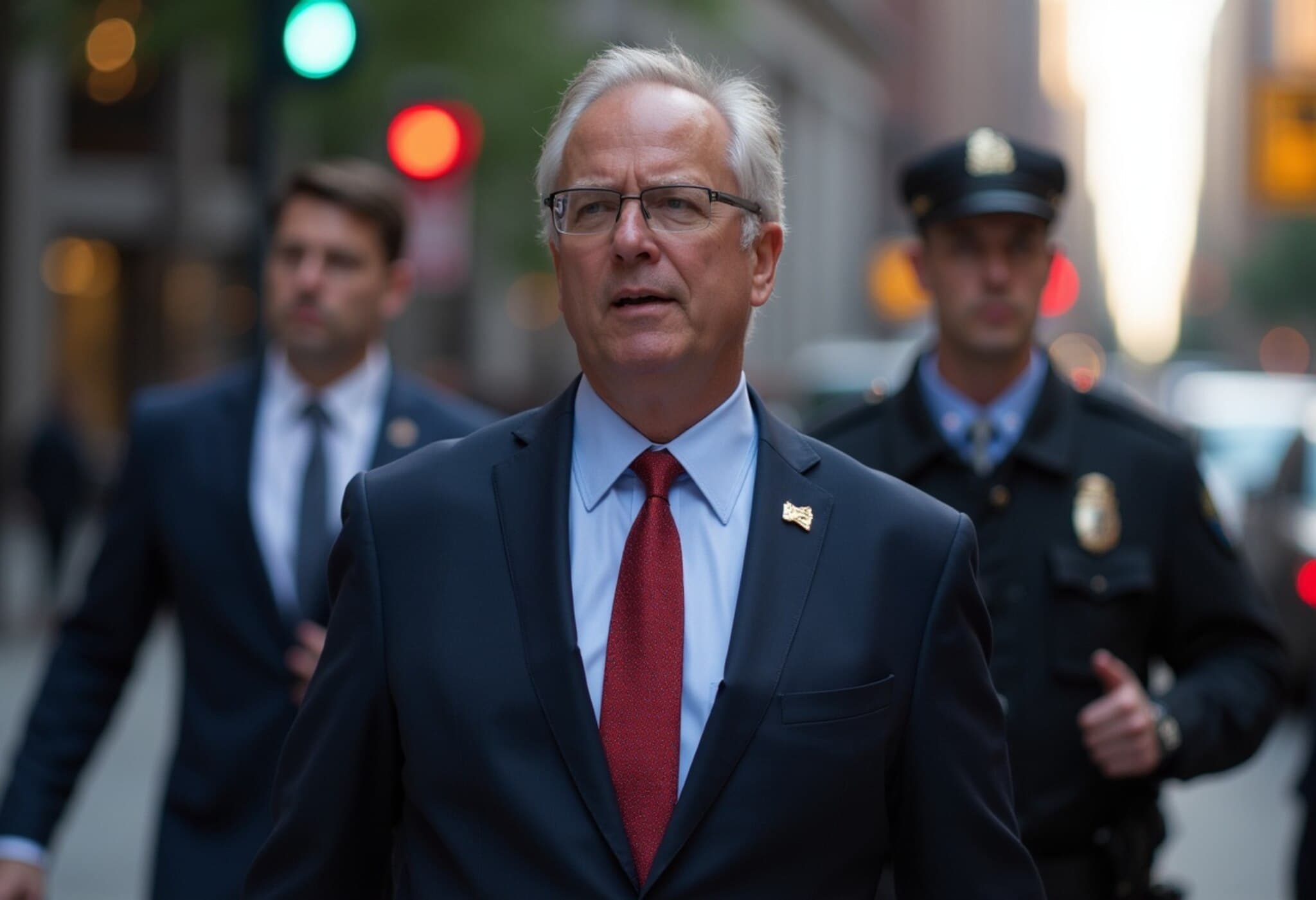DOJ Intensifies Efforts to Obtain Noncitizen Inmate Data from California Jails
In a bold escalation of immigration enforcement, the U.S. Department of Justice (DOJ) has formally demanded that California sheriffs provide detailed information on inmates in their custody who are not U.S. citizens. This demand includes specifics on the crimes committed by these individuals and their scheduled release dates.
Expanding Federal-Clan Tensions Over Immigration Enforcement
The request, which was communicated to major counties such as Los Angeles and San Francisco, reflects the Trump administration’s intensified efforts to accelerate mass deportations targeting undocumented individuals who have criminal records. DOJ officials warned that if California sheriffs decline to comply voluntarily, the agency won’t hesitate to use legal tools such as subpoenas or other compulsory processes to secure the data.
Attorney General Pam Bondi's letter to Los Angeles County Sheriff Robert Luna set a firm 30-day deadline for compliance. The letter also makes reference to a 2019 memorandum of understanding between the DOJ and the LA Sheriff's Department that, while not immigration-related, obligated the department to provide federal authorities with unhindered access to jail records.
Political and Legal Context in California
This development adds fresh fuel to the simmering clash between the federal government and California — known for its sanctuary policies that restrict local law enforcement's cooperation with federal immigration officials. The California Values Act (SB 54), enacted in 2017, prohibits local police from acting as de facto immigration agents, limiting their role in federal deportation enforcement. It also places strict limits on when detainee information can be shared with Immigration and Customs Enforcement (ICE).
California officials have vocally opposed the Trump administration’s immigration crackdown. Governor Gavin Newsom, a Democrat and vocal critic, seized the moment to mock Attorney General Bondi by linking her to the ongoing controversy surrounding the Jeffrey Epstein case files, which remain partially sealed. In a pointed social media post, Newsom’s office stated, "Pam Bondi will reopen Alcatraz the same day Trump lets her release the Epstein files. So... never." This jab underscores the deep mistrust between state and federal actors over immigration and broader governance issues.
Symbolism at Alcatraz and the Broader Immigration Battle
Adding a symbolic twist to the unfolding drama, Bondi and Secretary of the Interior Doug Burgum were briefed on federal policies at Alcatraz, the iconic former prison island in San Francisco Bay. President Trump has publicly advocated for reopening Alcatraz as a detention facility, a move that would be historically and politically charged given the site’s storied past.
Expert Insight: The Legal Tightrope and Human Impact
Legal analysts suggest that the DOJ’s aggressive data request raises complex questions about federalism and civil rights. California’s sanctuary policies are designed to protect immigrant communities from what many argue are overreach and racial profiling under federal immigration enforcement. For local sheriffs caught between federal demands and state laws, compliance involves navigating a precarious legal and ethical landscape.
Beyond legal debates, immigration enforcement ramps like these have a real human toll — families face separation, communities experience fear and distrust towards law enforcement, and local resources get diverted to manage the fallout. Experts warn that such policies risk undermining public safety by discouraging cooperation between immigrant communities and police.
What’s Next?
- The DOJ is expected to issue subpoenas if California sheriffs resist providing data.
- California’s legal teams may respond by challenging federal orders in court, citing state laws and constitutional protections.
- Federal-local tensions are likely to intensify, shaping the broader national discourse on immigration enforcement strategies.
Conclusion
The DOJ’s demand for detailed information on noncitizen inmates exemplifies the ongoing tug-of-war over immigration policy in the United States — a complex dance between federal authority and state sovereignty, policy objectives and human realities. How this standoff resolves will have far-reaching implications for immigration enforcement, intergovernmental relations, and the lives of countless individuals caught in the crossfire.
Editor's Note
This latest federal push puts a spotlight on the fragile balance between enforcing immigration laws and safeguarding community trust and civil liberties. Readers should consider: How might these policies affect the relationship between immigrant communities and law enforcement in the long term? And what legal precedents could emerge from this clash that shapes future federal-state cooperation or conflict?



















